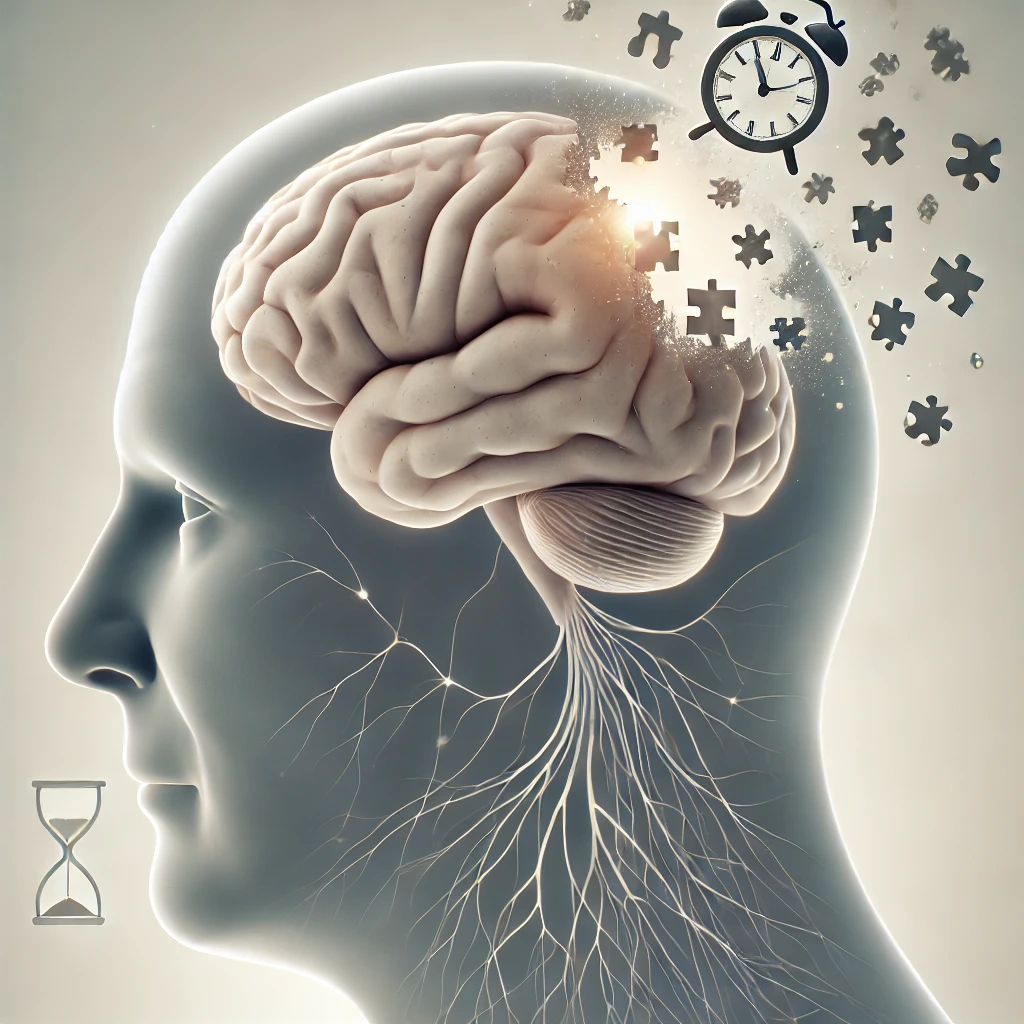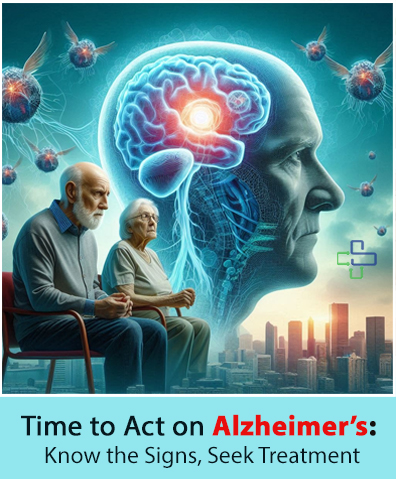Every 21st September, we observe World Alzheimer’s Day as part of World Alzheimer’s Month. This year’s theme, “Time to Act on Dementia, Time to Act on Alzheimer’s,” highlights the urgent need for awareness, support, and action to combat Alzheimer’s disease and dementia. With over 55 million people worldwide living with dementia and Alzheimer’s disease, the impact is profound, affecting not only patients but also their families and communities. At SimpleeKare Health, we’re committed to educating and empowering individuals to take action in the fight against Alzheimer’s. In this guide, we’ll explore Alzheimer’s disease symptoms, prevention strategies, Alzheimer’s disease treatments, and crucial steps to support loved ones affected by this debilitating condition.

1. What is Alzheimer’s Disease?
Understanding Alzheimer’s: A Progressive Brain Disorder
Alzheimer’s disease is a type of dementia that affects memory, thinking, and behaviour. It’s a progressive condition, meaning Alzheimer’s disease symptoms gradually worsen over time. Alzheimer’s is the most common form of dementia, accounting for 60-70% of all dementia cases. The exact cause is not fully understood, but it involves abnormal changes in the brain, including the buildup of plaques and tangles that interfere with neuron function.
2. Recognizing the Early Signs of Alzheimer’s
Time to Act: Identifying Early Alzheimer’s Disease Symptoms
Early detection of Alzheimer’s disease symptoms is crucial. Some common early signs include:
- Memory loss that disrupts daily life, such as forgetting important dates or events.
- Difficulty planning or solving problems, like trouble following familiar recipes.
- Confusion with time or place, such as forgetting where you are or how you got there.
- Problems with speaking or writing, including trouble joining conversations.
- Changes in mood and personality, like becoming easily upset or anxious.
If you notice these symptoms in yourself or a loved one, it’s time to act and seek medical advice from a neurologist. Early intervention can improve the quality of life and may slow the progression of symptoms.
3. The Global Impact of Alzheimer’s
Alzheimer’s is a Global Challenge
Alzheimer’s disease is not only a personal battle but also a global health crisis. According to the World Health Organization, more than 55 million people are living with dementia worldwide, with Alzheimer’s disease being the most common type. This number is expected to triple by 2050, making it critical for healthcare systems and communities to prepare for the increasing demand for care and Alzheimer’s disease treatments.
4. Why Early Diagnosis Matters
Benefits of Early Diagnosis and Intervention
An early diagnosis of Alzheimer’s disease can lead to:
- Better management of symptoms through medications and therapies that may slow progression.
- Access to support networks and resources, including educational materials and caregiver support.
- Involvement in clinical trials, where new Alzheimer’s disease treatments are tested.
- Planning for the future, including legal, financial, and healthcare decisions.
Being proactive in recognizing the symptoms and seeking a diagnosis can greatly enhance a patient’s ability to manage the disease and maintain independence for as long as possible.
5. How to Support a Loved One with Alzheimer’s
Practical Ways to Offer Care and Support
Caring for someone with Alzheimer’s can be challenging, but there are ways to offer effective support:
- Create a safe environment by minimizing hazards and ensuring the home is easy to navigate.
- Establish a routine that helps reduce confusion and anxiety.
- Use clear communication by speaking slowly, maintaining eye contact, and avoiding complex sentences.
- Encourage mental and physical activities like puzzles, reading, and walking, which can help stimulate the brain.
- Be patient and empathetic, recognizing that mood swings and memory lapses are part of the condition.
Providing care and emotional support, while considering ongoing treatments, can help improve the quality of life for both patients and caregivers.

6. Lifestyle Changes to Lower Your Risk
Time to Act: Prevention Through Healthy Living
While there’s no definitive way to prevent Alzheimer’s, research suggests that certain lifestyle choices can reduce the risk:
- Stay physically active: Regular exercise helps improve blood flow to the brain, which may lower the risk of developing symptoms.
- Eat a brain-healthy diet, such as the Mediterranean diet, which is rich in fruits, vegetables, and healthy fats.
- Stay mentally engaged: Puzzles, reading, and learning new skills may help build cognitive reserves and delay the onset of Alzheimer’s symptoms.
- Manage chronic conditions: Keep high blood pressure, diabetes, and cholesterol under control to reduce risk factors.
- Stay socially connected: Engaging in meaningful social activities can protect against cognitive decline.
Making these changes now can help reduce the likelihood of developing the symptoms later in life and minimize the need for future Alzheimer’s treatments.
7. Time to Act: SimpleeKare Health’s Role in Alzheimer’s Support
How SimpleeKare Health Can Help
At SimpleeKare Health, we understand the profound impact Alzheimer’s disease has on individuals and families. Our team is dedicated to offering comprehensive care, including Alzheimer’s disease diagnostics and treatments, alongside resources for patients and caregivers. From diagnostic services to caregiver support programs, we are here to guide you every step of the way. By acting now, we can make a difference in the lives of those affected by Alzheimer’s disease.
Conclusion
As we observe World Alzheimer’s Month this September, it’s more important than ever to take action. Whether it’s learning the early signs, making lifestyle changes to lower your risk, or supporting a loved one, now is the time to act. Alzheimer’s disease affects millions, but together, through awareness, treatments, and proactive steps, we can slow its impact and improve the quality of life for those affected. At SimpleeKare Health, we are committed to helping you navigate this journey with compassion and expertise.
Contact us today to learn more about our services, including Alzheimer’s disease treatments, and how we can support you and your family in managing Alzheimer’s disease.

Leave a Reply